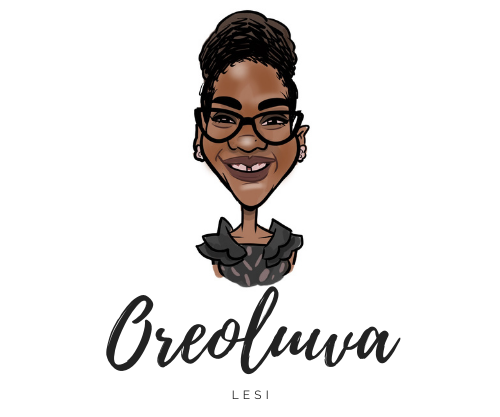By Oreoluwa Lesi
I think it’s important to continually expand and deepen one’s field of knowledge. And being a social entrepreneur for the last dozen odd years, means that I have sought out books, articles, podcasts, interviews and other opportunities to learn more about social entrepreneurship.

At the ICANN66 Annual General Meeting in Montreal, Canada.
Over the last few years, my interest has increasingly turned to public policy and its role in creating an environment that supported more girls and women studying, working and thriving in technology fields. And so I started to look for ways to get more involved in and learning more about policy.
The opportunity came along for me to join the Internet Corporation of Assigned Names and Numbers (ICANN). I admit quite frankly that during my first meeting I hadn’t the slightest clue about what was being discussed. Somehow, I did not run away 🙂 but instead hung around to meet people and talk to them. Virtually everyone shared that their early ICANN meetings had been filled with an almost identical confusion, but they assured me that things would start to make sense.
And slowly it did, but – as I found out – only if you put in the work. What does this mean? Well, show up to meetings is one (in person or remotely), soak in the discussions about domain names systems and read-up on the issues.
One of the most important aspects of ICANN’s work is to develop policy and make recommendations on domain name issues. At first glance, it might seem that only highly technical people would be interested in this. However, I found so many different types of people contributing to the discussions from technology specialists to lawyers to civil society actors and nonprofit leaders, to journalists and even the end users. Everyone was highlighting the issues that mattered the most to them. In my case, as a nonprofit director, that would include domain name abuse and related fraud, upholding transparent domain registrations and cybersecurity issues.
I joined the Not for Profit Operational Concerns Constituency (NPOC) and with lightening speed that astounded even myself, joined the Executive Committee.
In October, at the annual general meeting in Montreal, Canada, I was selected for the ICANN Fellowship. The ICANN Fellowship Program aims to strengthen the diversity of the multistakeholder model by fostering opportunities for individuals from underserved and underrepresented communities to become active participants in the ICANN community.
Fellows are exposed to the workings of the ICANN community, are assigned a mentor, and receive training across different areas of knowledge and skill building before, during, and after an ICANN Public Meeting.
It is an extremely competitive application process and I was selected on my second attempt. But even happier news! On the day I arrived in Montreal, I discovered that I had been selected for a second consecutive fellowship for early next year.
As a fellow, I participated in workshops and sessions specially designed for the fellows and had the opportunity to meet a more diverse group of people from across the ICANN ecosystem than I typically would.
In Montreal, I started my second term serving on the NPOC Executive Committee and was selected as an NPOC representative on a Policy Committee. Now, I have a real opportunity to soak in more knowledge and jump into the policy development process. I know this is going to stretch me, but ultimately, I hope to emerge from the experience more a more knowledgeable and confident contributor.
I would highly recommend the ICANN fellowship to anyone interested in getting more involved in the organisation’s work and the wider ecosystem of domain name systems, policy development and internet governance. Check out the website and carefully note the requirements. It is a competitive process, so put your application together with care and get someone to review your completed application, if you can.

Recent Comments